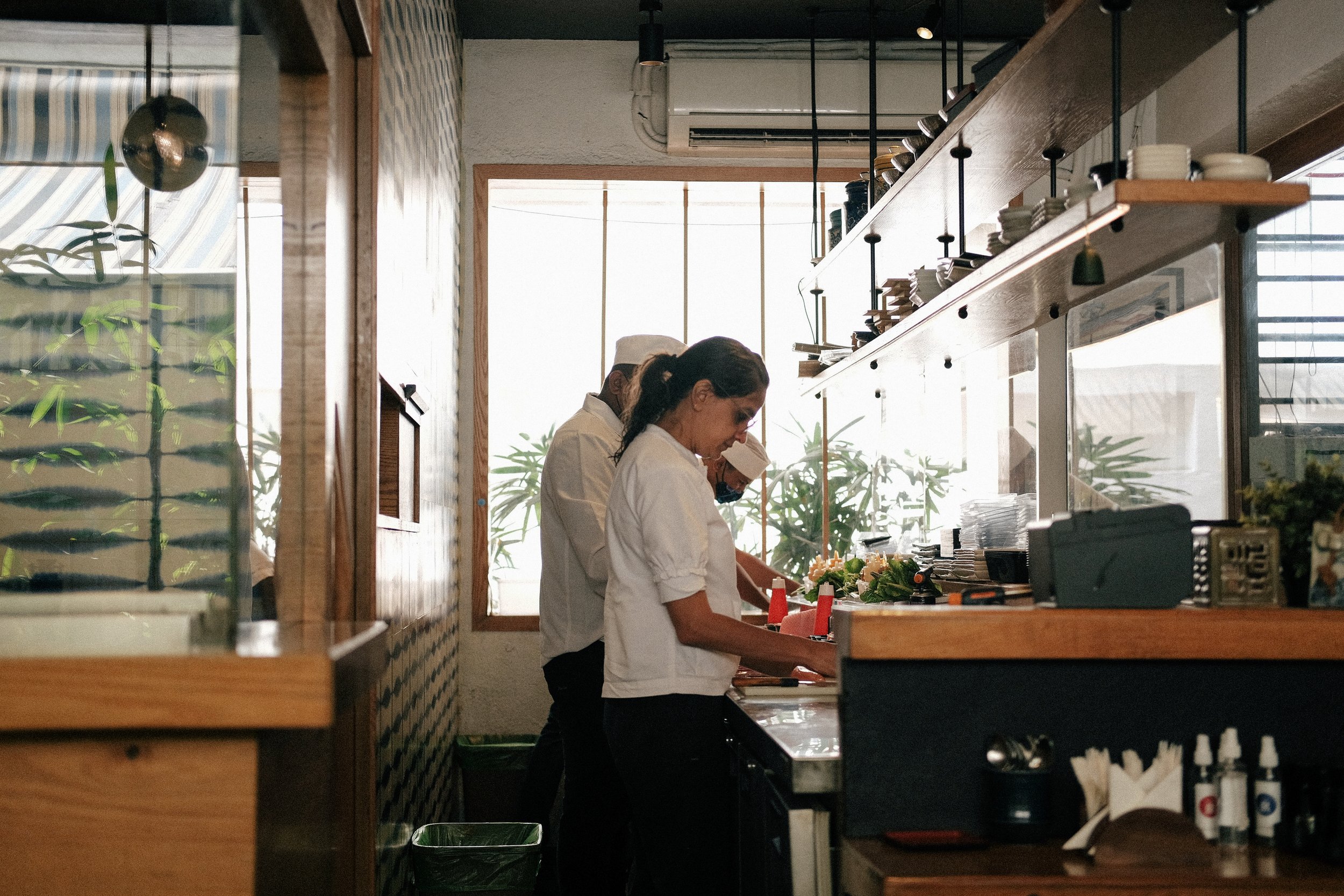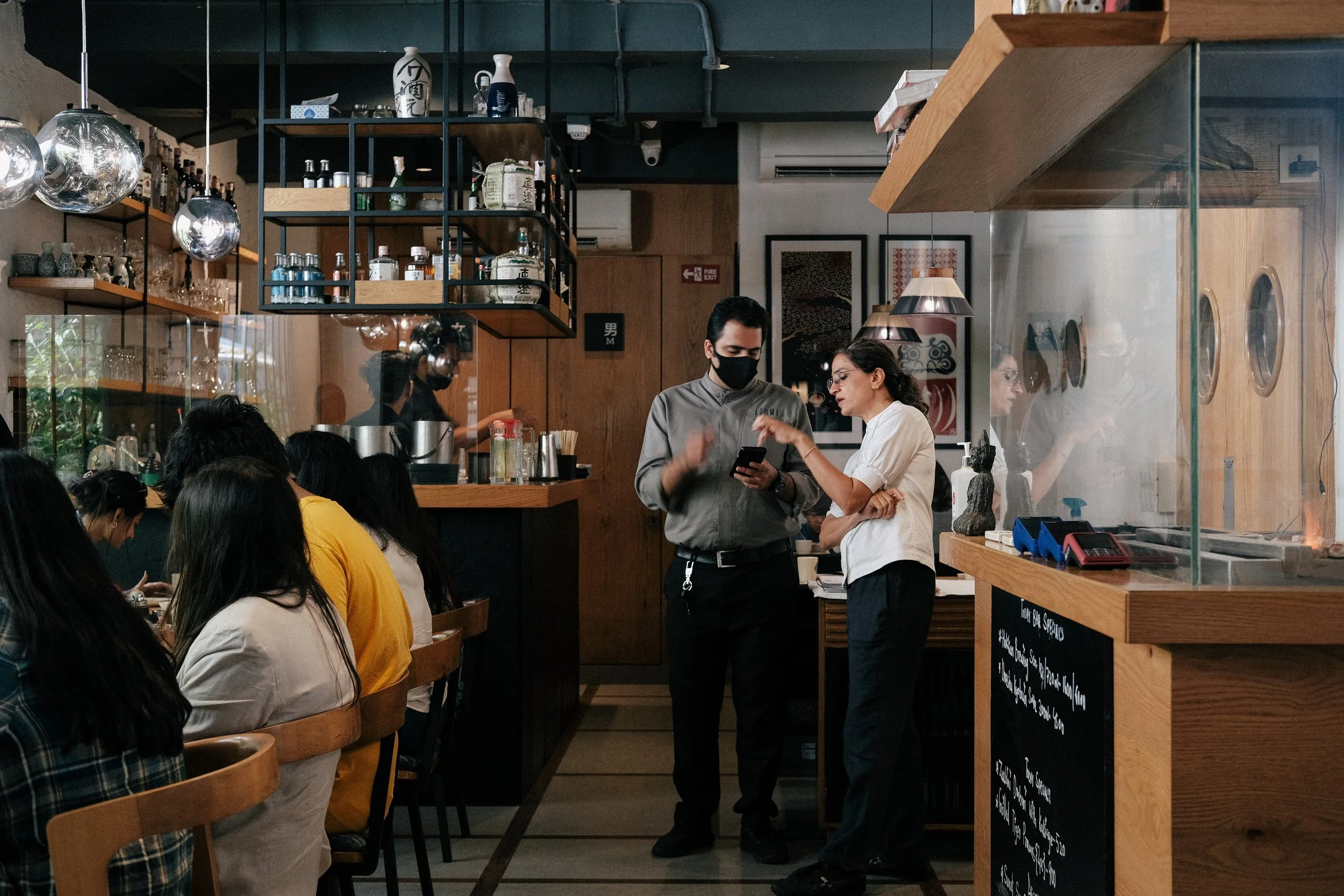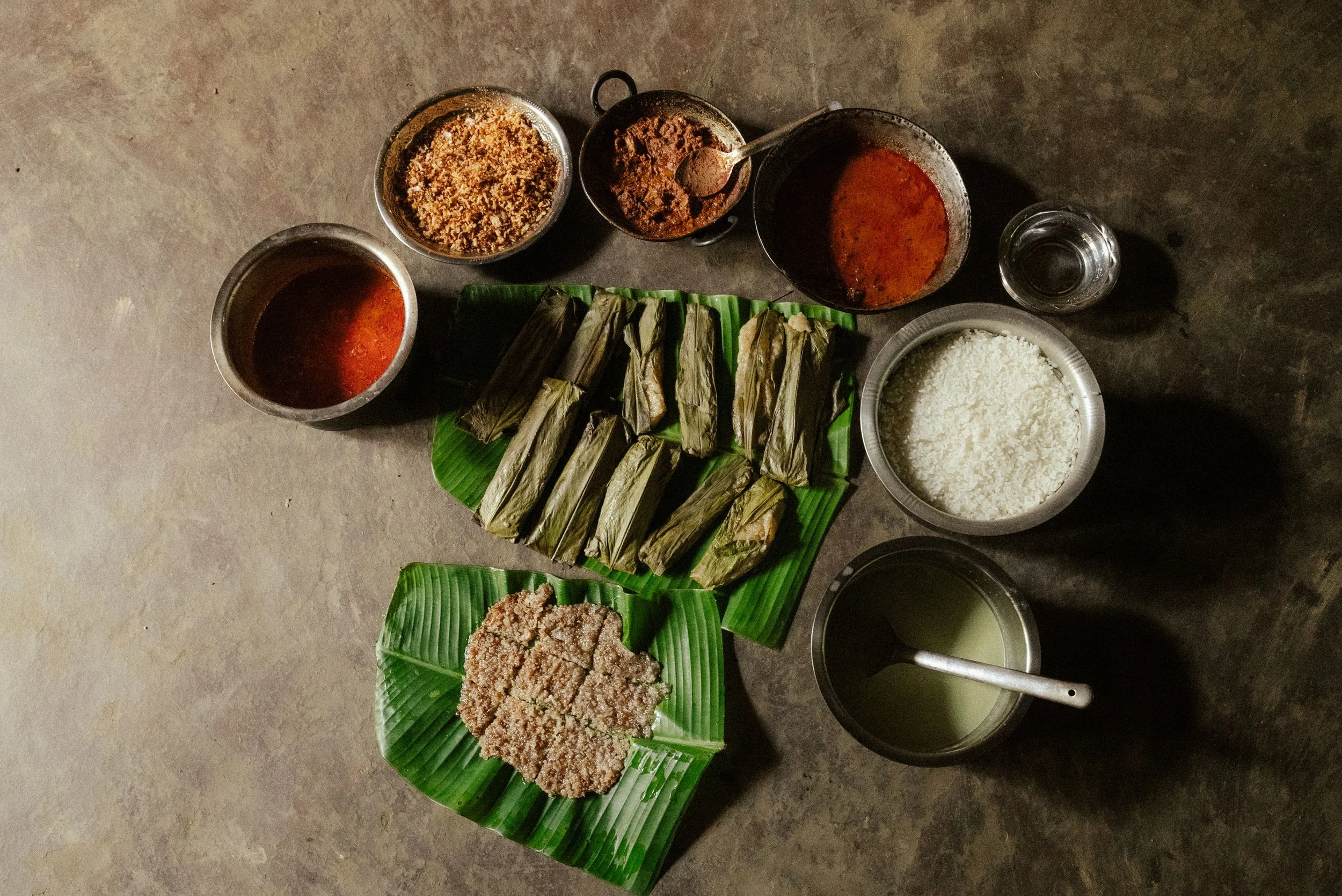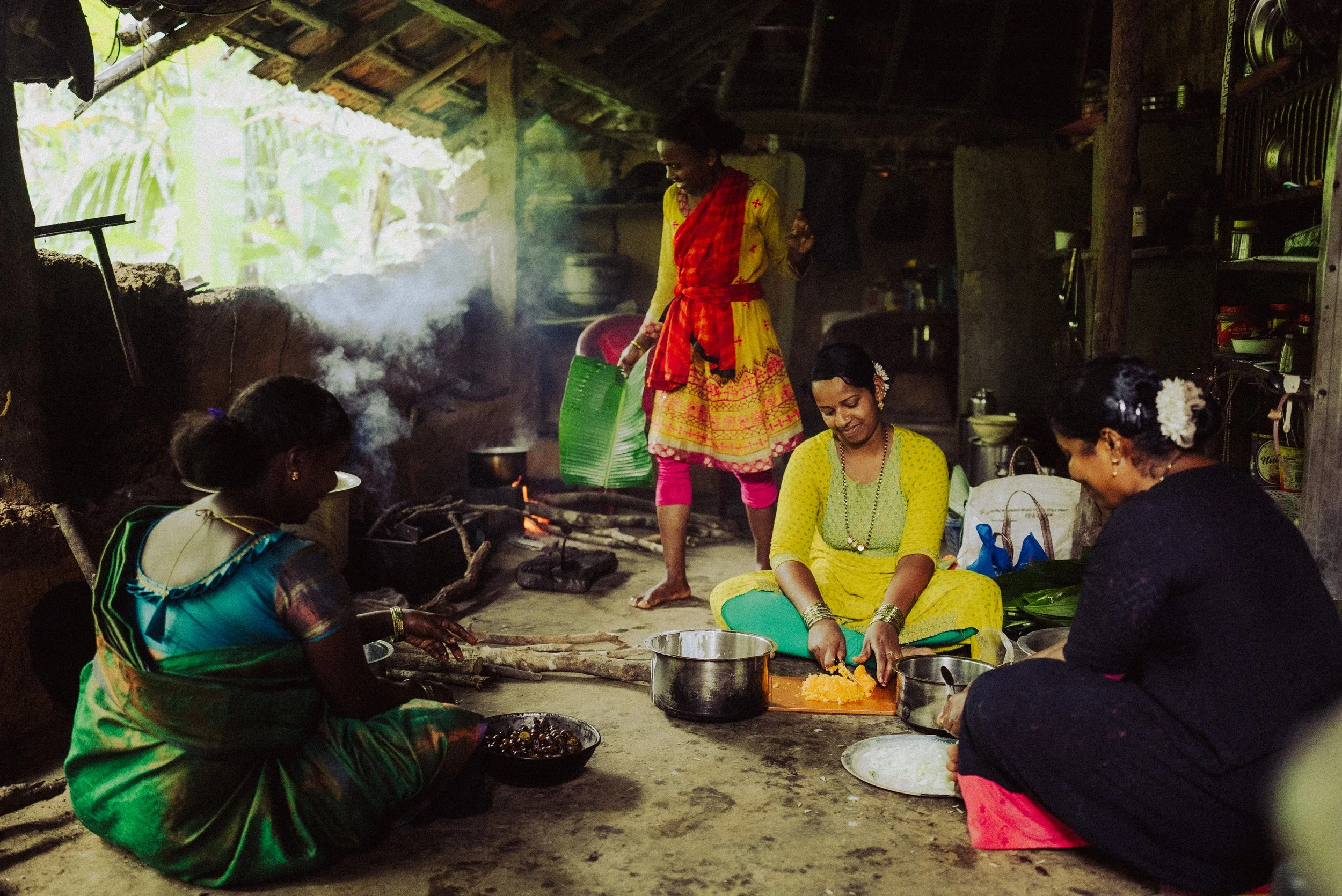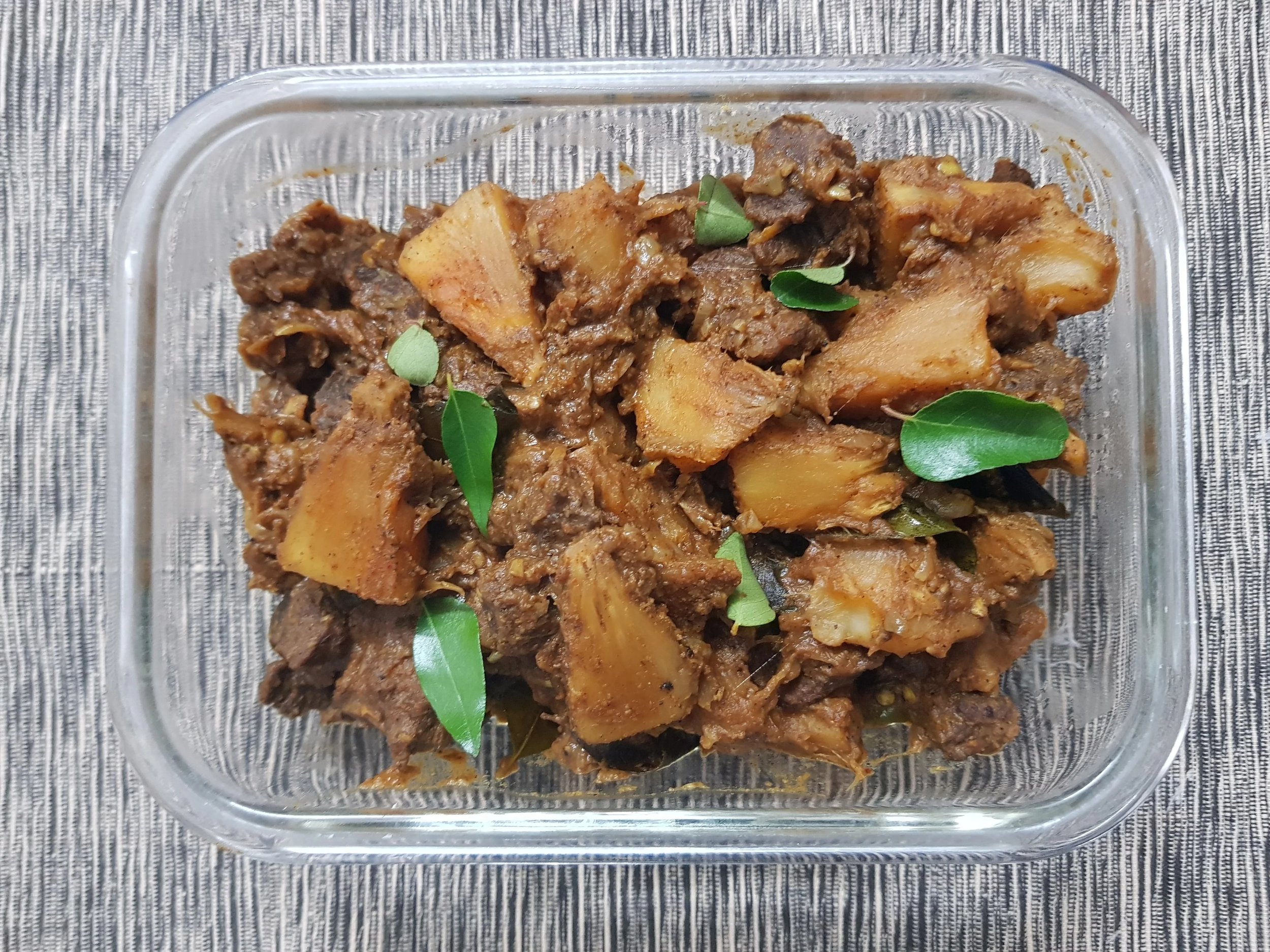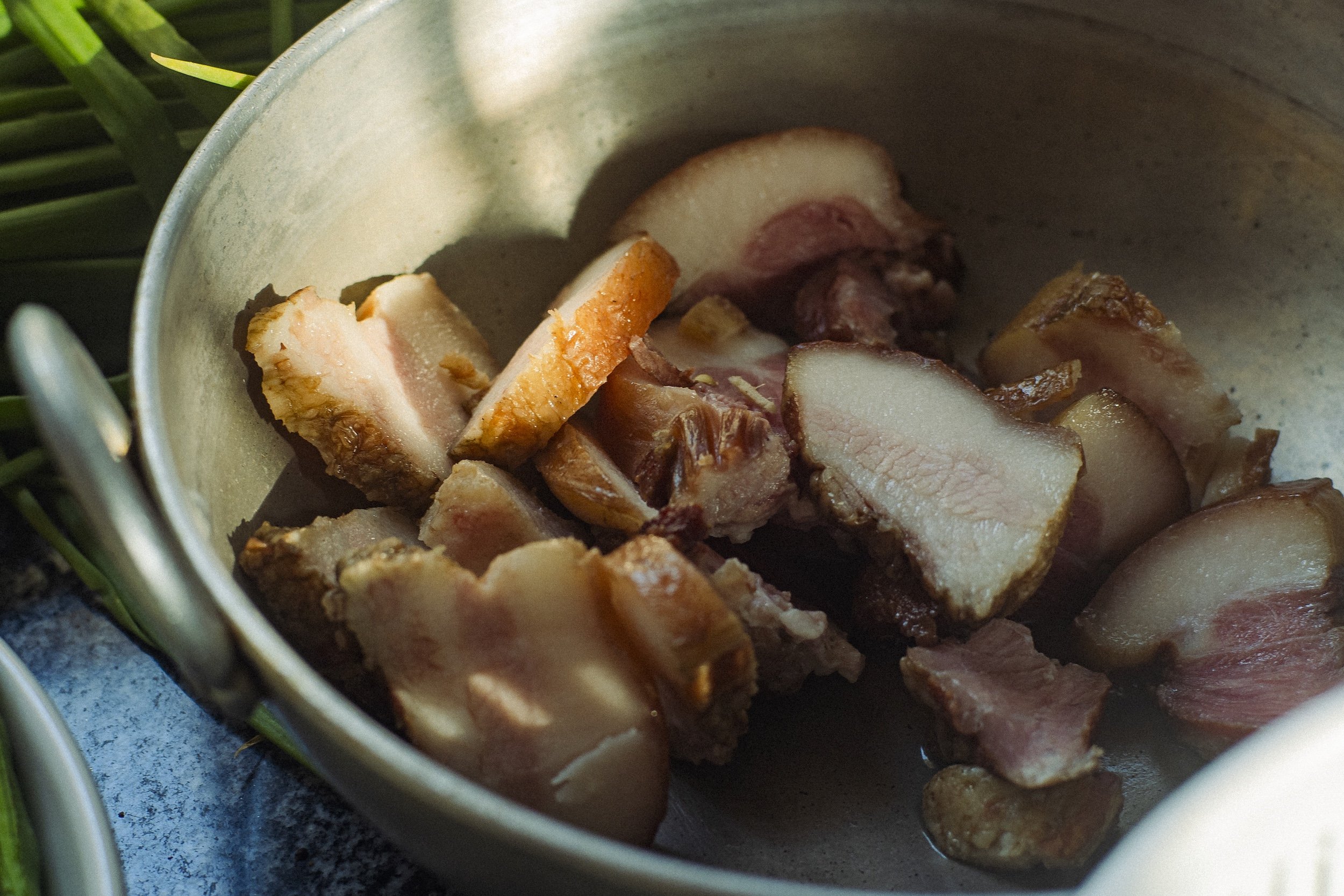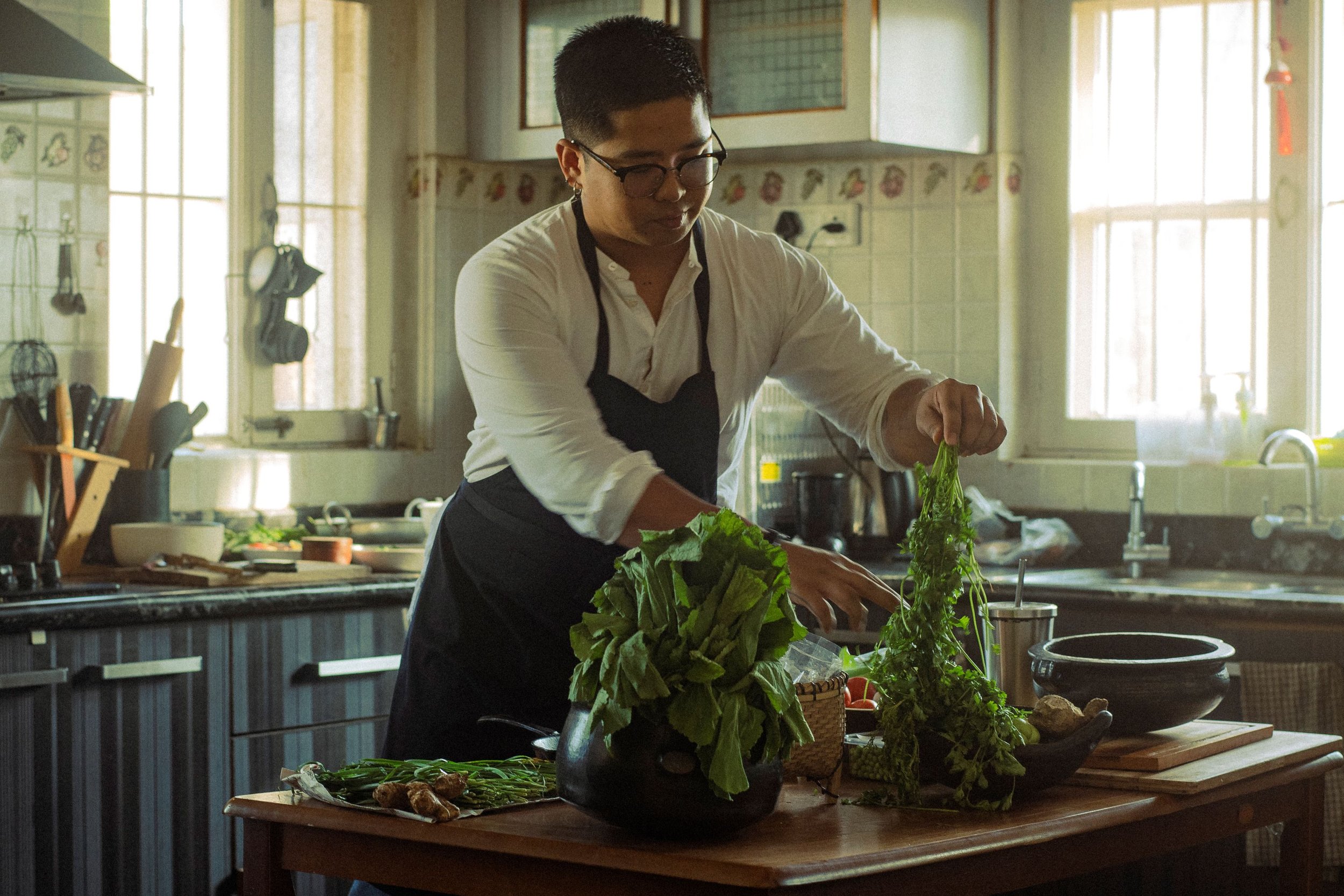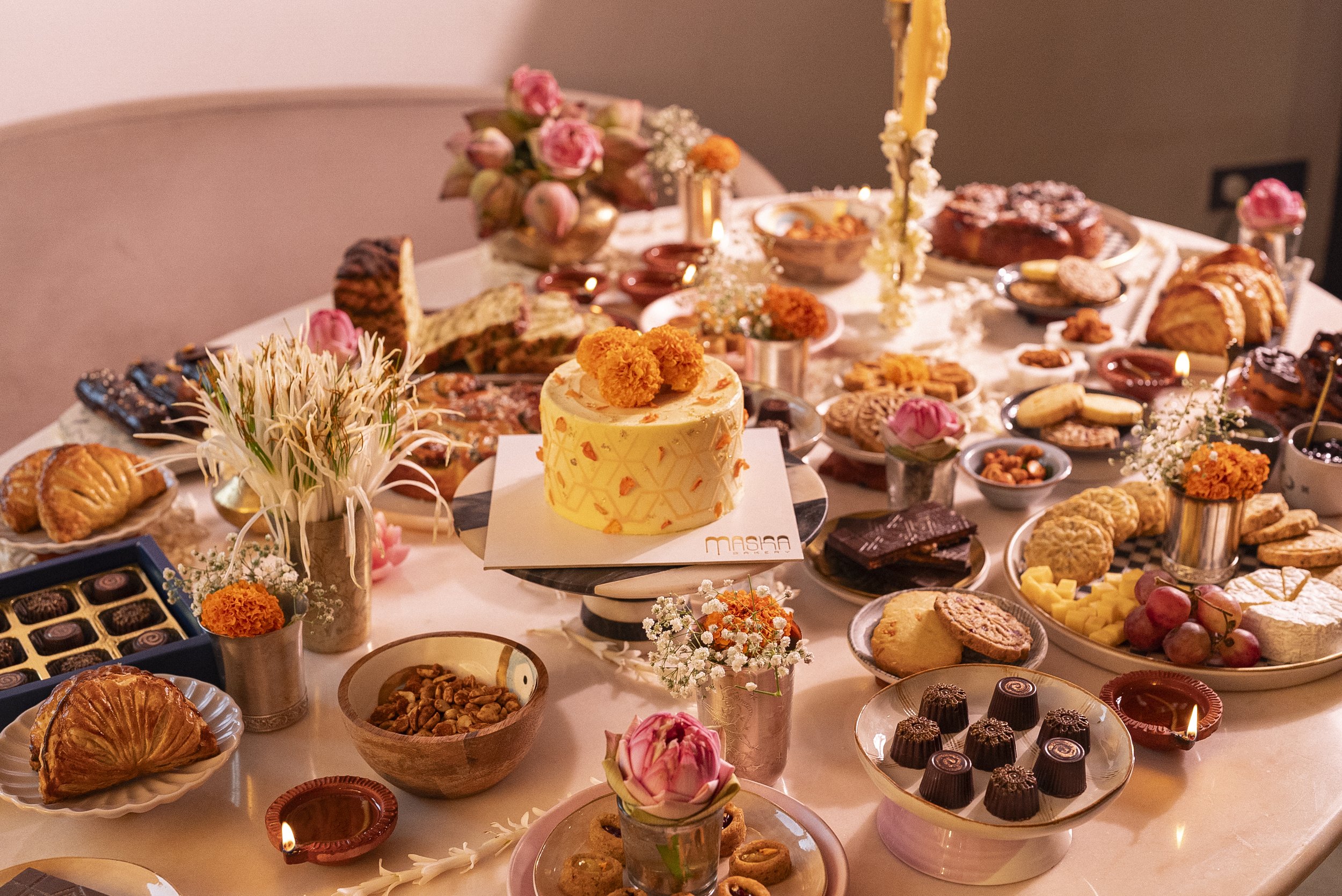Nooresha Kably Runs India's Most Exciting Japanese Restaurant
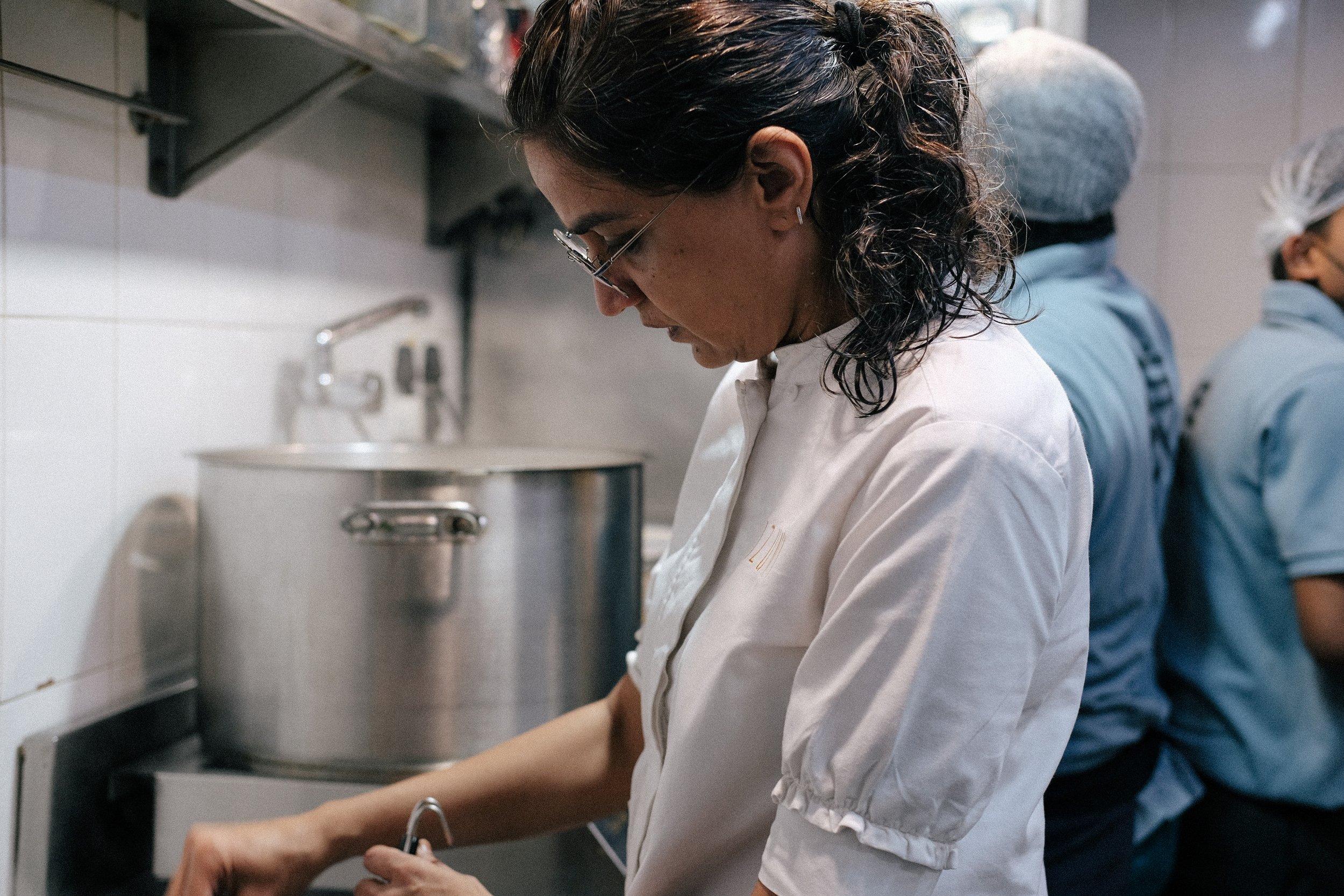
Tansha Vohra talks to Nooresha Kably about her journey as an entrepreneur and chef, and what it means to be at the helm of one of India’s best Japanese restaurants.
Every now and then, along comes a place with with so much soul, it makes you comfortable enough to hop up and sit on the counter; one that serves up nothing short of a warm hug in a bowl. And so it is with Izumi, Bandra’s iconic sushi and ramen spot, run by Anil and Nooresha Kably, and their two partners, Neale Murray and Owen Roncon. Opened in 2018, Izumi was #3 on Conde Nast’s Top Restaurant Awards in 2019, and winner of Best Oriental & Japanese award at the Times Food & Nightlife Awards the same year. Chef Nooresha Kably was ranked #8 on Culinary Culture’s annual list of India’s Top 30 Chefs 2022. Izumi is also a close friend’s favourite third-date spot, which is really the highest accolade a restaurant could hope to achieve. (He argues that one’s choice of ramen provides crucial information. I am inclined to agree). Having done so much, so well, in such a short span of time, it is hard for anyone in the industry to ignore Izumi. With the restaurant’s newest opening in Goa, I jumped at the chance to chat about ingredients, Tokyo, balance, and Japanese knives, with Nooresha Kably herself.
Nooresha dives right into her journey, moving from full time mother to chef at age 45. She first started with Sushi Koi, a delivery kitchen in Bandra that she conceptualised and ran along with Chef Tika, who made the sushi. “I knew how I wanted things to look and taste in my head, but I couldn’t quite explain myself — words would fall short,” she remembers. Nooresha realised the next step in her journey inevitably meant going to Japan, to learn the art of sushi herself. Being somewhat of a compulsive researcher, I couldn’t imagine the time it must have taken to choose a school to embark on this tremendous culinary journey in Japan, every epicurean’s paradise. “I didn’t spend time researching.” Nooresha laughs watching my face convulse in shock. She explained that she found her school over a simple google search. “I didn’t want to waste any time. So when I found a school and got accepted, I just went with the flow.”
As we speak, Nooresha realises that it was exactly this week, 5 years ago, that she was in Japan. “It’s all coming back to me…” She smiles softly. The first time she was in Tokyo, it was sakura season, and the city was transformed into a cascading pink dreamscape, leaving her enthralled. Nooresha spent 3 months in Japan learning sushi and elements of Washoku, a culinary culture in Japan that speaks to the harmony achieved by combining fresh ingredients with simple seasonings. In a class of 17 international students, each representing a diverse field of work, the environment was one that fostered curiosity and exploration. Navigating Tokyo through the metro and their taste buds, Nooresha and a friend from class took every chance they got to eat takoyaki; balls of batter filled with octopus, pickled ginger, and scallion, cooked in a special pan and served with a savoury sauce; and shabu-shabu or “swish-swish,” as translated from Japanese onomatopoeia, a nabemono or hot pot-styled dish of paper-thin meat and vegetables in a delicate dashi broth — her favourite.
The Philosophy of Japanese Food
Looking back at this immersive experience, there is clarity in what Nooresha learnt — and unlearned, an aspect that often goes unmentioned. At home, you are likely to find her cooking Bohri or Khoja food, where the trick to fixing something, or improving a dish, is always to add a little more — a little more chilli, an extra dash of ghee, and all is well with the world again. Cooking Japanese food, in a culture that prides itself on restraint, requires a different skill. “I had to unlearn the idea of more — I had to shed the extra trimmings to coax the flavour out of a single ingredient. Less truly is more,” she tells me in a low whisper, a tone suitable to the sharing of a hard-won secret. We get around to talking about Japanese knives and the hype that surrounds them — “It’s real. They have a single-side edge, and are made from superior carbon and steel. When sharpened right, they make everything so easy,” she insists. Nooresha learnt with the Deba, Yusuba and Yanagi, the sashimi knife, which is what she uses most.
“Just around the corner is Golden week in Japan, a compulsory week off from work, because everyone in Japan is a workaholic. That’s what I truly learnt during my time there — the art of self-discipline and the desire to never stop working. The smallest of jobs is done with the largest amount of pride,” she reflects. Nooresha came back to Japan the following year, to learn ramen in Yokohama, and work at a restaurant. She then returned to Mumbai and opened Izumi in 2018.
Izumi’s First Avatar
“I remember when we first opened Izumi, we were always running short of space for people to sit. Forget sit,” Raffael Kably laughs, “there wasn’t enough space for us to serve anyone!” Raffael, Nooresha’s stepson and entrepreneur within the hospitality industry, reminisces with us. His laughter infectious over the phone. He describes the first iteration of Izumi: a space so intimate it felt like being in a friend’s living room on a Friday night. “We had no idea how people would respond to it — no one could predict what Izumi would become. When we were still setting up, there was a cloth draped over the signage, and people would poke their heads in and ask what was happening — there was a certain curiosity. I invited a bunch of my friends to sit at the table and we served up the menu one night. I still don’t know how everyone fit. But that was enough to kick us off.”
Nooresha recounts a memory from the 4th day of opening Izumi, when Anil, her husband and partner, rushed into the kitchen in a panic. “There are hoards of people who want to get in, and I don’t know what to do! They’re all getting upset.” Nooresha quietly admits to going outside to see it for herself! Izumi quickly became the neighbourhood’s most beloved spot — “You wanna do dinner at my ramen spot? It’s right here!” A restaurant that people felt a deep sense of ownership over.
Her journey was not without its challenges. Entering the culinary industry with no prior experience as a chef, and cooking a cuisine that is more ingredient-specific than any other; keeping a growing business running through a global pandemic, and balancing all of that with family life, is no easy task. The pandemic brought the hospitality industry to its knees, and recovery remains painstakingly slow. “When we were finally able to re-open, certain dishes had to be removed completely, because the ingredients had become inaccessible. A shipping container that would cost $3000 suddenly shot up to $15000. We had to be flexible,” Nooresha says.
Certain decisions such as sourcing sushi rice from growers in Himachal Pradesh and using chonak, or the giant sea perch, seasonally on their menu in Goa, are small steps toward building a more resilient system. Given how integral each ingredient is to a dish, maintaining consistency in supply is crucial. “My team and I are constantly sniffing everything — we’re like a pack of sniffer dogs! When someone has a cold, it’s a disaster!” Nooresha says. “I wish I had more of myself to give, and more time to give it in,” she slips in. “Time is really the biggest challenge.”
A lot of what Nooresha has achieved and been able to dedicate time to, has been with support from her family — her parents, Anil, and her son. “My son encouraged me to go to Japan and learn. And my team of chefs have been the truest part of my journey — Lince, Chetan, Aditya, Rohit, Tika. Aditya started as a delivery boy, and then became my sushi chef. Lince joined a month before we opened and took over management of my entire kitchen team. They became my right hand.” And then she laughs, half-serious: “They never gave me attitude about being a female chef. There was nothing but respect there.” She remembers Moni, who used to work with her. “She was my biggest motivator, a real taskmaster. Unfortunately she passed away, but if she was here now I can absolutely imagine her being my right hand, and giving the team a push whenever needed!”
At last, I got to the bit I had been waiting for over the course of our conversation. It was a little test I devised, in the hope of revealing something true. “It’s 9pm on a Friday night: How would your sous chef describe you?” I ask her cautiously. With a pause long enough to suggest honesty, she looks down and responds. “Angry.”
I burst out laughing. She laughs too.
“My best days are when service has gone smoothly, without me getting angry at all. That’s a good service!” Then she adds, “I’m working on it, I am... But where’s the time?”
I laugh again, shaking my head in no response. Where, indeed.
Tansha is a food writer and researcher, currently documenting the culture of eating insects in India, and fermenting them in her kitchen for @theboochiproject.
Photos by Anisha Rachel Oommen.
Thank you to our friends at Izumi for sponsoring this feature.
ALSO ON THE GOYA JOURNAL
